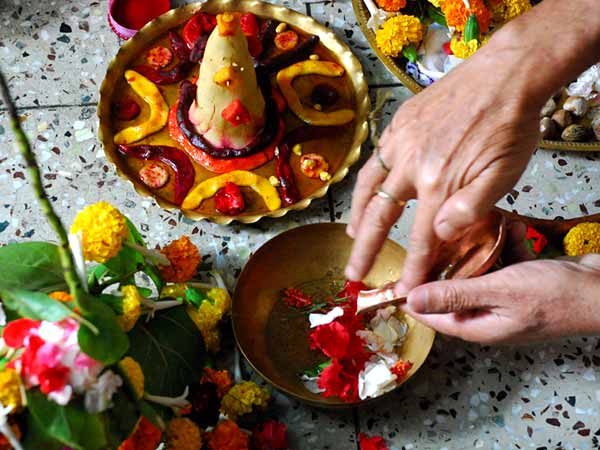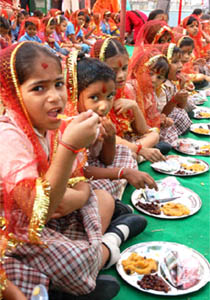I don't know how many times did I type "Happy Diwali" in last two days. I am wondering what was so happy about diwali? I know i sound very very selfish and negative here.
While I was dressed up in my anarkali kurta and chudidar, all braced with jhumkis and bangles, walking cautiously in my heels holding my sleek clutch in one hand and a gift wrapped in shiny gift paper, I passed by the press-wali(see meaning below) stationed underneath the staircase of the multi storey flat where our family friend lived. I had the same thoughts in my mind - What is so happy about Diwali and Diwali gifting? The eagerness and efficiency with which the middle aged press-wali clad in her simple, unstarched cotton Saree, was ironing the clothes of her clients made me feel so shallow. I was fortunate to be wearing one such dress and not the one ironing it for someone else to shine brightly in the well creased dress done by me.
I lowered my head, thanked God for that for his graciousness that He has bestowed on me and my family.
Back home, when I lighted a diya and a candle outside my home before doing puja performed by my Mother in law, I saw a bunch of rag picker boys. I was surprised to see one of the boys lustily looking at the burning candle. Confused, I asked him whether he wanted to steal the candle. A bright light shone in his eyes and he smiled sheepishly on my question. Seeing a strict look in my eyes, he backed off, but then shot a question on my, to which the only way I could have reacted was a dropped jaw - "aaj Diwali hai?" he asked, meaning "Is it Diwali today?"
Needless to say that i felt a great pity on the boy who does not even know about the one of the biggest festivals of India. He added quickly that since he does not have new clothes so he does not know. Then, I realized, he was just making a fool out of me. Phew! it's so easy to fool me. The boy was soon joined by his friends, and they had around 5 or 6 packets of correcting fluids and thinners in their hands.
Rag- pickers and correcting fluid is one mismatch. But, I was not surprised. These young boys like many rag pickers, beggars etc. use them like drugs, to get a high, as an intoxicating agent may be. They spend their hard earned money in buying stuff to please them for a few hours. It was Diwali for them, to be able to buy so many bottles at one go. The bunch of small boys, all dirty and stinking, jumped like monkeys, with their pockets stuffed with red and white packets, and they vanished in a by lane, probably to enjoy their Diwali.
I didn't know should I be happy for them or sad for them. I don't know....
All I know the boys will be back the next morning, looking for unexploded crackers, match boxes, empty cartons etc on the roads. They will be equipped with some tool to scrape off the melted wax of candles of Diwali night outside the houses. I'm sure they would catch hold of some leftover sweet box somewhere on some corner of the colony.
I'm sure about that....
Anyways Happy Diwali guys.....
RESTLESS
Press-wali - In many Indian cities, some people create small stalls (basically a wooden table and a coal iron) in the lanes and by-lanes of colonies and iron people's clothes for money. They are commonly known as press wali or press wala.


























